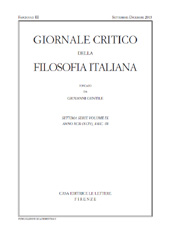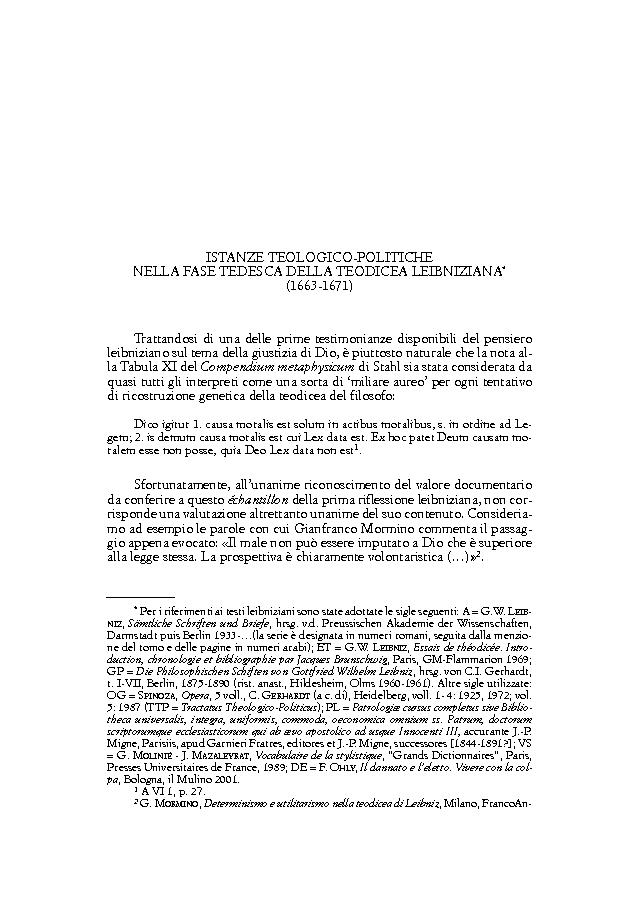Istanze teologico-politiche nella fase tedesca della teodicea leibniziana (1663-1671)
585-605 p.
L'articolo prende in esame il controverso problema dell'esistenza di una prima fase volontarista (1663-1671) nella teodicea leibniziana. In primo luogo allo scopo di repertoriare e di analizzare tutti i riferimenti a delle posizioni volontariste riscontrabili nella produzione leibniziana tra 1663 e 1671; in secondo luogo per fornire un'analisi dettagliata del Von der Allmacht und Allwissenheit Gottes und der Freiheit des Menschen (1671), riservando una particolare attenzione agli exempla ed alle parti narrative di cui Leibniz si serve per illustrare le proprie tesi. Tali elementi testuali sono quindi confrontati con gli stilemi ricorrenti nelle opere di altri autori, quali ad esempio Maresius, Wittich, Heidanus, Burman, Desgabets e Régis.
La ricerca si propone di mostrare come alcune delle contraddizioni che sembrano caratterizzare in modo eminente la prima fase della teodicea leibniziana, siano in realtà condivise dalla maggior parte dei protagonisti del dibattito teologico secentesco e si configurino come il portato diretto di uno sforzo teso alla conciliazione di differenti istanze di tipo teologico, filosofico e politico. [Testo dell'editore].
This paper examines the problem of existence of a first voluntarist phase (1663-1671) in Leibniz's theodicy. We shall first catalog and analyse the references to the doctrine of voluntarism in Leibniz's writings between 1663 and 1671. Then analyse the Von der Allmacht und Allwissenheit Gottes und der Freiheit des Menschen (1671) and specifically focus on the exempla and the narrative parts that the author added in order to illustrate his thesis. Textual elements will be linked to analogous argumentation and rhetorical devices that can be found in contemporary works, such as in Maresius, Wittich, Heidanus, Burman, Desgabets and Régis. The aim of this study is to show how the contradictory tendencies which the researchers identified in Leibniz's first attempts at a theodicy, were actually shared by most of the protagonists in the 17th century theological debate, and that this is a characteristic aspect of a conciliatory tendency where political and philosophical reasons were both determinant. [Publisher's text]
.
-
Articles from the same issue (available individually)
-
Information
DOI: 10.1400/273092
ISSN: 2284-1474



